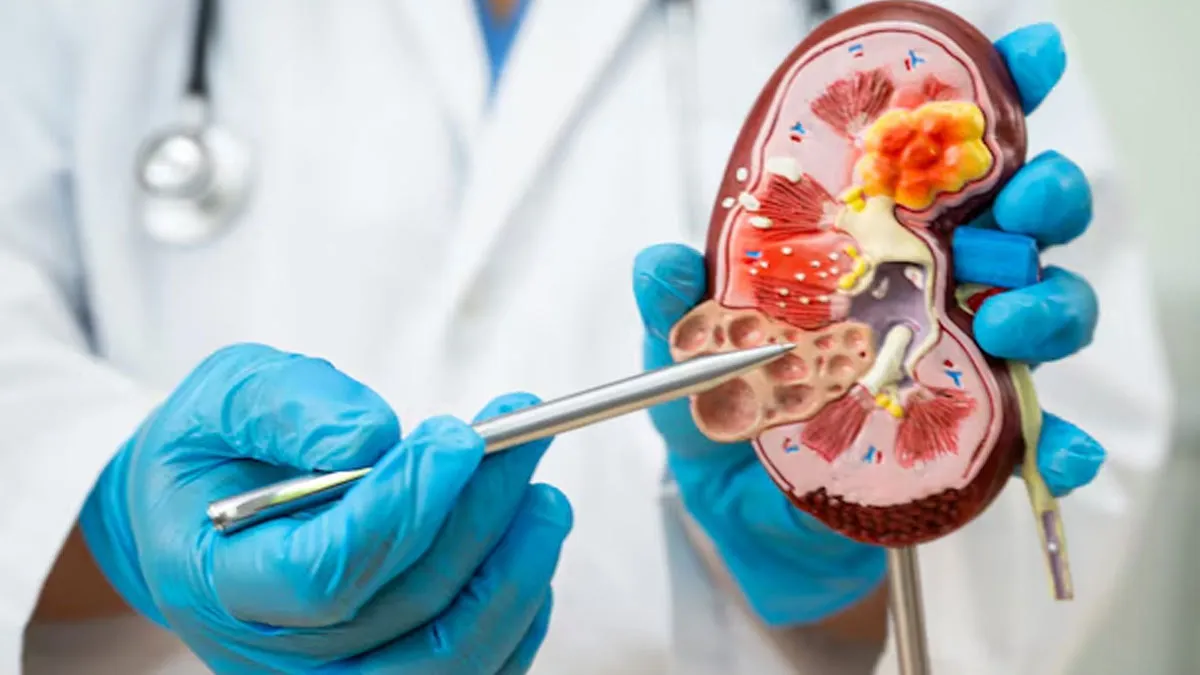
Kidneys are a vital body organ responsible for removing waste, regulating blood chemicals, controlling blood pressure, and maintaining healthy bones. If you are diagnosed with kidney disease, a condition in which the kidneys can't filter blood properly, you may face various consequences. This condition often progresses silently and the symptom may become noticeable only in later stages. However, being aware of early warning signs can help patients take timely action to slow disease progression and maintain better health. We spoke to Dr Nikhil Bhasin, Consultant Nephrologist and Renal Transplant Physician, Wockhardt Hospitals, Mumbai Central, who listed signs that your kidney disease is getting worse.
Table of Content:-
Signs That Your Kidney Disease Is Becoming Worse
1. Chronic Fatigue and Weakness

According to a 2014 study, fatigue is a common symptom in patients with advanced kidney disease, affecting quality of life and clinical outcomes. The prevalence rate ranges between 42-89%, with its prevalence varying significantly depending on the specific treatment and assessment methods used. As kidney function declines, waste products build up in the blood, leading to extreme tiredness, difficulty concentrating, and persistent weakness.
2. Anaemia
Anaemia is another warning signal that your kidney health is in danger. This is because damaged kidneys produce less erythropoietin, a hormone that stimulates red blood cell production, leading to anaemia. This can cause dizziness, pale skin, and shortness of breath even with minimal exertion," said Dr Bhasin. According to an analysis of the National Health and Nutrition Examination Survey (NHANES) data from 2007-2010, patients with Chronic Kidney Disease (CKD) were twice as likely to have anaemia as the general population, with a prevalence of 15.4% compared to 7.6%.
Also Read: How Much Water Should You Drink In A Day To Pass Kidney Stones Naturally?
3. Swelling

The kidneys eliminate extra water from the body through urine and filter waste from the blood. This fluid may remain in the body rather than be eliminated when the kidneys are not functioning properly. As a result, you may notice swelling in your feet, ankles, legs, and eyes. This may be an indicator of heart disease.
4. Nausea, Vomiting, and Loss of Appetite
“The causes of nausea and vomiting in CKD are complex and linked to metabolic imbalances and gastrointestinal changes. The buildup of toxins in the blood can trigger digestive issues, including nausea, vomiting, and a persistent metallic taste in the mouth, often leading to weight loss,” added Dr Bhasin.
Also Read: Kidney Failure And Stroke: Understanding The Connection And Risks
5. Shortness of Breath
Anaemia and fluid retention in the lungs can make breathing difficult, even during rest or mild activity. Additionally, kidneys regulate electrolyte levels, such as potassium and sodium. An imbalance can affect breathing and lead to shortness of breath.
6. Uncontrollable High Blood Pressure

If you are unable to manage your blood pressure even after treatment, it may indicate declining kidney health. When the blood vessels in your kidneys are harmed, they can struggle to function effectively. This impairment prevents the kidneys from filtering out all waste and excess fluid from your body. As a result, the increased fluid in the blood vessels can elevate your blood pressure further. This results in a harmful cycle that can cause additional damage and potentially lead to kidney failure, as stated by the National Institute of Diabetes and Digestive and Kidney Diseases.
7. Changes in Urine Production
"You should also be cautious of symptoms like foamy urine (a sign of protein leakage), reduced urine output, frequent urination at night, and blood in the urine. These symptoms indicate declining kidney function," added Dr Bhasin.
Bottomline
Dr Bhasin concluded, "If you notice any of the symptoms listed above, don't delay consulting a doctor to avoid complications. It is important to regularly monitor your health, make lifestyle modifications, and stay connected with a doctor to slow kidney disease progression and improve overall well-being."
[Disclaimer: This article contains information provided by an expert and is for informational purposes only. Hence, we advise you to consult your professional if you are dealing with any health issue to avoid complications.]
Also watch this video
How we keep this article up to date:
We work with experts and keep a close eye on the latest in health and wellness. Whenever there is a new research or helpful information, we update our articles with accurate and useful advice.
Current Version